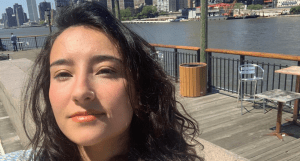In my role, I’ve been able to connect with people diagnosed with epilepsy who may be struggling with their condition. We set short and long-term goals and try to focus on progress. I like to give “homework”. For instance, in one of my early sessions, I noticed my service user kept saying she felt like she was the only one that had this condition, and she was isolated. I asked her to do some online research of famous people alive or dead that have or had epilepsy. The next week, she told me all about how she felt like a movie star.
long-term goals and try to focus on progress. I like to give “homework”. For instance, in one of my early sessions, I noticed my service user kept saying she felt like she was the only one that had this condition, and she was isolated. I asked her to do some online research of famous people alive or dead that have or had epilepsy. The next week, she told me all about how she felt like a movie star.
When I completed my first befriending assignment, I was so proud of my service user. I loved watching her improve week by week, and become more comfortable with being vulnerable and earnest, not only with me, but with the people closest to her.
I was motivated to volunteer with Epilepsy Action and the befriending role in particular because when I was diagnosed with epilepsy at 17 I felt isolated. Even though I had a great support system, it was difficult for me to share my fears and confusions with my friends and family because I felt they wouldn’t understand. The befriending role offers such a unique support of how common it is to be surrounded by loved ones and still feel misunderstood. Hopefully though, through Epilepsy Action, the service user can feel a bit more understood.
The thing I have enjoyed most about being a befriender is getting to know my service user! I could tell if she was having a bad day because you become so acquainted with this person you’ve never met and form a unique bond. Together we had come up with specific goals, all which were focused on coping with her diagnosis, and being a participant in her achieving those goals was the most rewarding.
I think no matter whether you are someone who has epilepsy, a parent of someone who has epilepsy, or someone with no relationship to the condition at all, this role challenges your empathy and resilience, and gives you a sense of perspective.
I am epileptic, and I know the challenges that come with that. I have made many mistakes and have come a long way to truly accept that I have epilepsy. I wanted to help others through my personal experiences. This role has allowed me to do that. What surprised me though was the range of people I have met: all ages, all genders, and from all kinds of places. It has made the experience very meaningful.
If I was going to share my thoughts with someone who is thinking of becoming a befriender, I would tell them it’s a very rewarding role, but please don’t take it lightly. Service users who reach out are suffering and need support and help, however if you can commit to the process and form those relationships, then you can really help your service user as well as gain valuable experiences and development yourself.
I’m looking forward to seeing what this programme will do for people with epilepsy. It’s a new programme and seeing how fast it’s grown is amazing. I hope to keep learning from people of the epilepsy community and continue to develop a healthy relationship with my own diagnosis.

